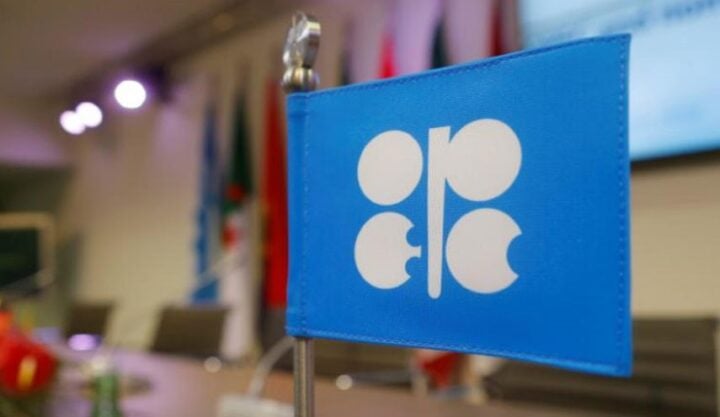The Organisation of Petroleum Exporting Countries (OPEC) says Nigeria’s average daily crude oil production dropped to 1.32 million barrels per day (bpd) in February.
The oil output figure represents 105,000 bpd or 7.36 percent decrease from the 1.42 million bpd recorded in January.
In its monthly oil market report released on Wednesday, OPEC said the production data was based on direct communication with Nigerian authorities.
OPEC receives data on crude oil production from two sources: direct communication — which is from members of the group; as well as secondary communication, such as energy intelligence platforms.
Advertisement
With its current drilling performance, the country retained its position as the biggest oil producer in Africa.
OPEC said Libya is Africa’s second-largest producer, with 1.17 million barrels per day, followed by Algeria with 906,000 bpd.
Meanwhile, OPEC’s secondary sources put Nigeria’s crude production at 1.476 million bpd — a 3.29 percent uptick from the 1.429 million bpd reported by the oil cartel in January this year.
Advertisement
“According to secondary sources, total OPEC-12 crude oil production averaged 26.57 mb/d in February 2024, 203 tb/d higher, m-o-m. Crude oil output increased mainly in Libya and Nigeria, while production in IR Iran and Iraq decreased,” the report reads.
‘BUSINESS CONFIDENCE DECLINED OVER RISING PRICES’
According to the report, Nigeria’s gross domestic product (GDP) witnessed an increase of 3.2 percent, year-on-year in the fourth quarter (Q4) of 2023, leading to an annual growth rate of 2.9 percent last year.
“This was primarily fueled by advancements in the agricultural sector. Recent figures have revealed that Nigeria registered an annual inflation rate of 30% in January 2024, with prices rising across both goods and services,” the report reads.
Advertisement
“Excluding volatile items, core inflation rose to 23.6%, y-o-y, the most substantial surge since 2004. This inflationary trend is anticipated to persist in the upcoming months.
“From a policy standpoint, the Nigerian naira devalued by 45% at the end of January, following rapid depreciations throughout 2023, as the Central Bank of Nigeria (CBN) transitioned to a more flexible currency regime.
“Assuming that the naira finds stability post-devaluation and with the inflow of multilateral loan disbursements, it is projected that the inflationary momentum may decelerate.
“The ongoing challenges were reflected to some extent in the recent Purchasing Managers’ Index (PMI), as the Stanbic IBTC Bank Nigeria PMI declined to 51.1 in February from 54.5 in the preceding month.”
Advertisement
Subsequently, OPEC said, business confidence declined with concerns over rising prices and signals of slowing demand.
However, OPEC said despite the challenges, the short-term economic outlook remains cautiously optimistic.
Advertisement
Add a comment






